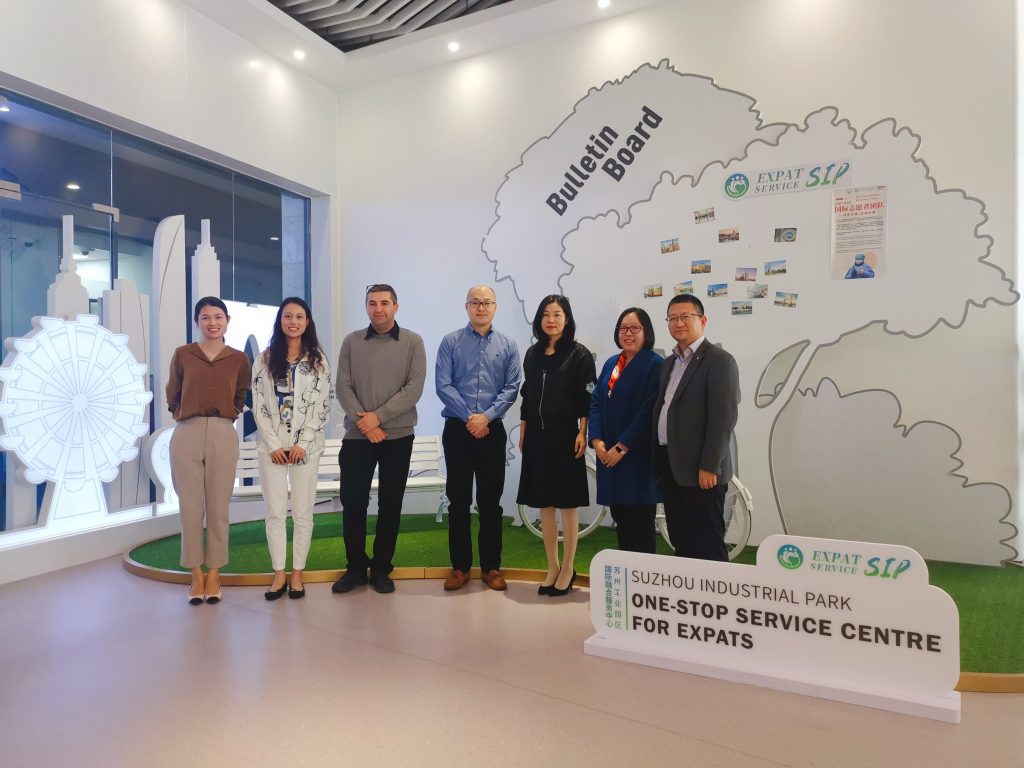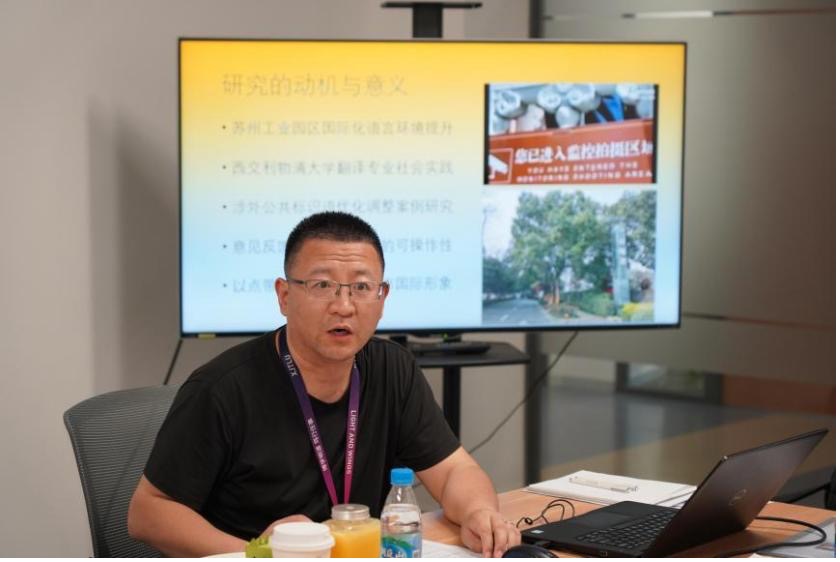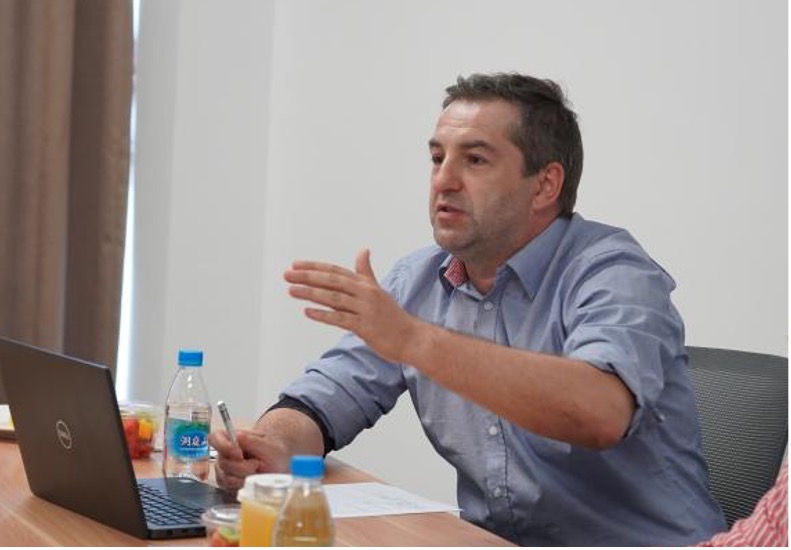12 Jun 2023
On May 29th, a seminar was held by Xi’an Jiaotong-Liverpool University and the Foreign Affairs Office of Suzhou Industrial Park (SIP) regarding the upcoming research collaborative consultancy project on the Bilingual Signage Translation at SIP.
They hope that effective measures and solutions can be formulated to meet the demand for bilingual signage in SIP, to optimize the international language environment, and to further enhance international position of SIP through discussion and research on this project.

Ji Sheng, Deputy Director of SIP Foreign Affairs Office, Liangqiong Chen and Xuan Zou from SIP International Integration Service Centre, and Dr Wan Hu, Dr Xiaojun Zhang and Dr Pawel Zygadlo from XJTLU’s research team attended this seminar.
The project will be jointly completed by the Department of Translation and Interpreting and the Department of China Studies from the School of Humanities and Social Sciences at XJTLU. Dr Xiaojun Zhang, the Chinese coordinator of the project, pointed out that SIP features its openness and innovation and makes its international environment. The standardized and authentic foreign language signs are the important symbols of building the international environment.
He said, “As the opening window of Suzhou to the outside world, it is important for SIP to enhance its international language environment. The translation of public signs directly reflects the external image of SIP, and any obvious translation errors or missing translations will affect its image.
“In addition, the collaboration between XJTLU and the Foreign Affairs Office of SIP on translation consulting services helps to give full play to the advantages of professional talents and resources of the university, and explore new initiatives and models. Students in BA Translation and Interpreting participating in this project will grow and develop their translation practice. Not only can they learn academic knowledge, but they can also lay a solid foundation for their future career development."

Dr Xiaojun Zhang introduced that the research project will be conducted by selecting one scenic spot, two schools/universities, three public places and four resident communities, to make case studies and data analysis. The whole research activity will be divided into four stages: data collection, data analysis, solution discussion, and final report.
He also proposed the innovation of the project – the grading system for translation errors. He said: “Unlike previous urban landscape research projects that focused on the writing of research reports after data collection, this project focuses more on the feedback and the feasibility during the adjustment process.
“If some signage replacement will be too costly, we might consider establishing priorities and sequencing them according to urgency and feasibility, and further establish a hierarchy of translation errors based on this.”
Dr Wan Hu, project advisor and head of the Department of Translation and Interpreting, commented, “What we are thinking about is how to effectively make those landscape areas be aware of the gaps in translation, and at the same time let them consider how to improve the translation in order to solve the problem in a better and more practical way. Our team’s goal is to provide practical solutions instead of just pointing out problems.”

Dr Pawel Zygadlo, the project's foreign coordinator, emphasized the importance of upfront communication with the contact persons involved in the next surveys. He said: “Adequate and effective communication beforehand lays a solid foundation for the successful implementation of the project, enabling the project to be completed with high quality and efficiency within the specified deadline.”
Ji Sheng, Deputy Director of SIP Foreign Affairs Office, expressed high appreciation for the grading system of the project. She said that this initiative focused on feedback and feasibility, and allow the project adjust and optimize the process so that it can provide practical solutions according to the specific needs of the client.
“This project can provide strong support for the internationalization of SIP, further shape the international image of SIP, and attract more attention from international partners and investors. The positive spirit of collaboration will bring more opportunities and development prospects for SIP.
“This cooperative model can also establish an example of beneficial interaction between other universities and enterprises, promote the in-depth development of industry-university-research cooperation, and make greater contributions to cultivating outstanding talents and promoting social progress,” she said.
By Tianxiao Zhou
Photos by Tianxiao Zhou
Translated by Yichang Wang
Edited by Yi Qian
12 Jun 2023








